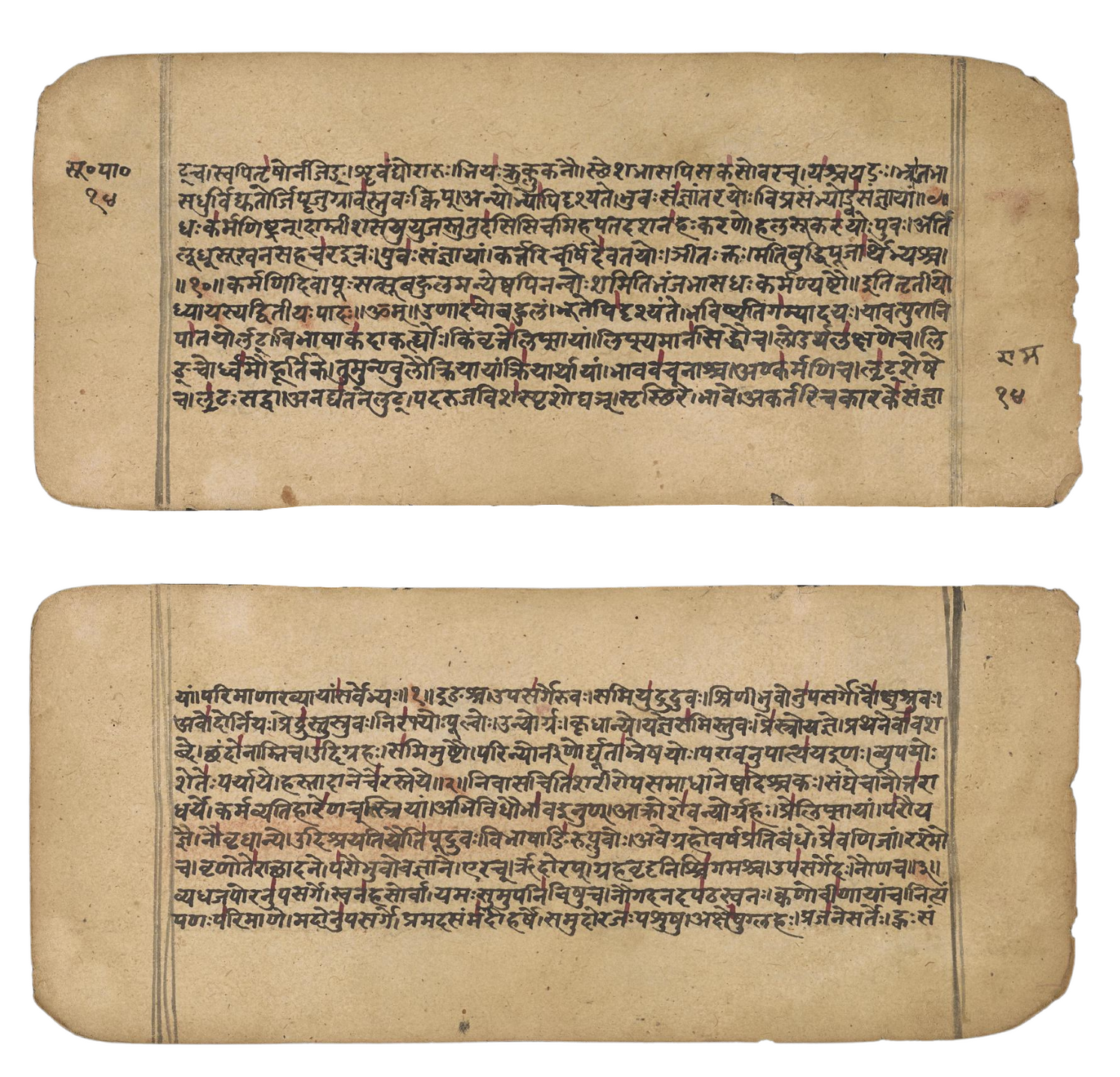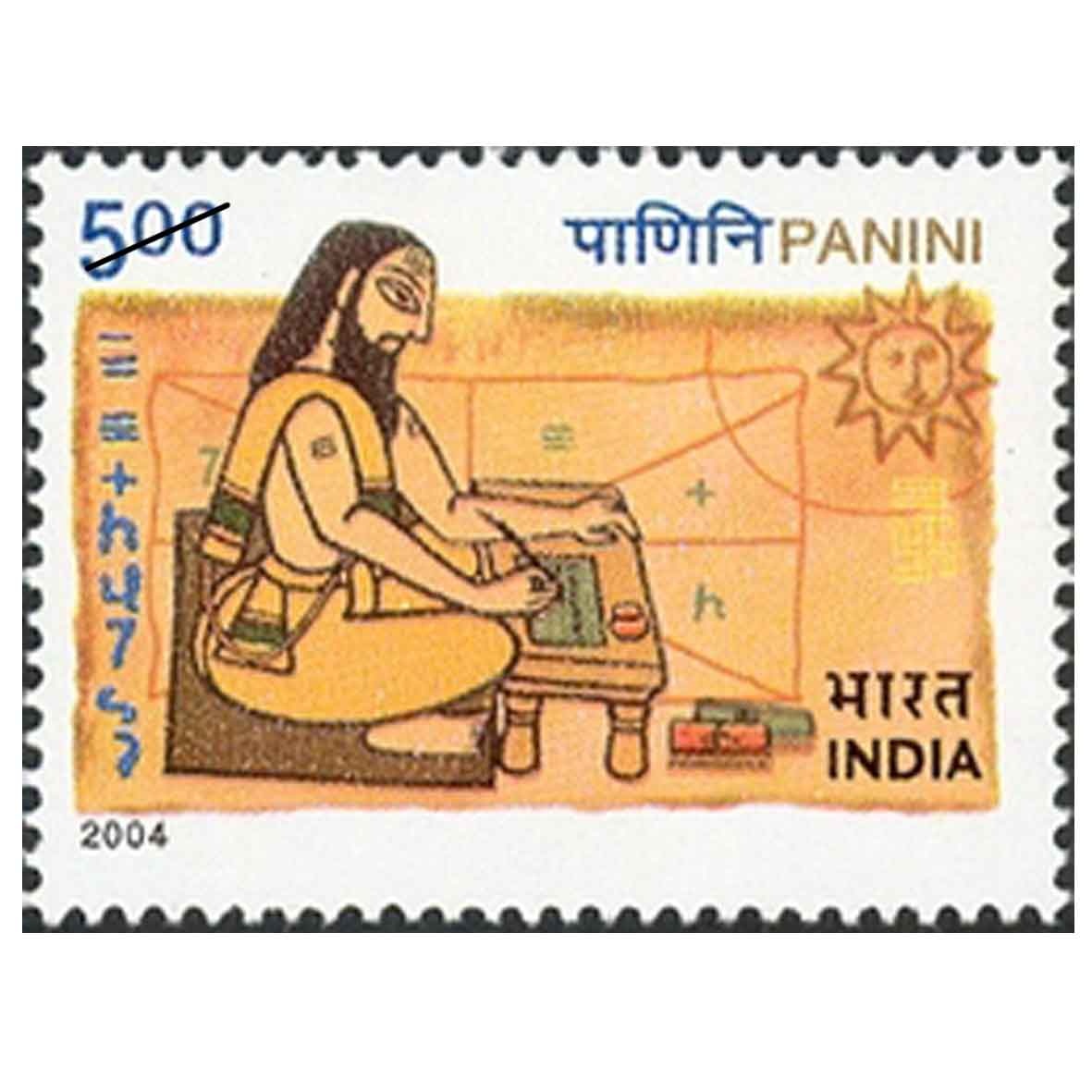
Course Description
Welcome back to SKT 306 | Pāṇinian Sanskrit Grammar Level II! This course will be a continuation from SKT 305 | Introduction to Pāṇinian Grammar, where we studied the sārvadhātuka architecture of word formation. In this course, we will tackle its counterpart, the ārdhadhātuka architecture of word formation, to construct the full gamut of verbal forms (except for 2, which we will tackle in a future course). This course will continue to give students a feel for real śāstra study – the systematic study of a subject in the traditional Sanskrit world – by taking them through a simple and organized study of vyākaraṇa, the study of Sanskrit word formation and breakdown
Pāṇini (5th century BCE), the chief systematizer of Sanskrit grammar, wrote approximately 4000 rules (sūtras) to codify the language. This codification is like computer code: ready to input base materials (roots and suffixes), whirring and humming, and outputting a final word that can be used in speech. The study of grammar is about understanding the whirring and humming. What is the process by which a root and suffix combine to become a word? What is the process by which words combine to make meaning? Once a student understands this, they can also understand how a sentence breaks down into its constituent words, and how a word can break down to its constituent roots and suffixes.

A 12-Step Pāṇini Program
We will use Pāṇini’s Aṣṭādhyāyī, the 4000 sūtras, and his Dhātupāṭha, a list of all the primary roots and their meanings, as our main textbooks for this course. We will study a 12-step process for the production of every single verbal form of the following tenses and moods: luṭ (periphrastic future tense), lṛṭ (simple future tense), lṛṅ (conditional mood), and āśīrliṅ (benedictive mood), along with forms constructed with the suffixes yak (passive voice), ṇic (causative), yaṅ (frequentive/intensive), and san (desiderative), among many other forms using similar processes, for every single verbal root. The formation of these particular forms is called the ārdhadhātuka-prakaraṇa (the ārdhadhātuka process), and is the secondary level for anyone wishing to dive into a serious study of Sanskrit grammar. Since it is secondary in nature, it is highly recommended that students take SKT 305 Introduction to Pāṇinian Sanskrit Grammar as a prerequisite for this course.
This course uses the method of study developed by Dr. Khanna’s Sanskrit teacher, Professor Pushpa Dikshit, known as the Pāṇinīyā Pauṣpī Prakriyā, a more logical and efficient way to approach studying Panini's sūtras. This course aims to continue to deepen students’ understanding of the wonders of Sanskrit grammar and to eliminate the fear of studying such a vast language. Through the study of Sanskrit grammar, one becomes capable of reading more advanced Sanskrit texts, and can come to experience the indescribable joy of deriving a word correctly from its base materials, roots and suffixes. Join us on this journey!

Course Preview
Course Modules
Module 1 — Recap of Level 1
Module 2 — (6) Iḍāgama
Module 3 — (7) Pratyayādeśa and (8) Dhātvādeśa
Module 4 — (9) Atideśa and (10) Dvitva/Abhyāsa-kāryam
Module 5 — (11) Aṅgakāryam (in general)
Module 6 — Yak pratyaya and ṇic pratyaya
Module 7 — Luṭ lakāra (periphrastic future tense), Lṛt lakāra (simple future tense), and Lṛṅ lakāra (conditional mood)
Module 8 — Āśīrliṅ lakāra (benedictive mood) and yaṅ and yaṅluk (frequentive/intensive) forms
Module 9 — San (desiderative) forms
Students Will Receive:
- 2-3 Pre-recorded Video + Audio Lectures per Module (90 min per week)
- 9 Pre-recorded Q&A sessions + recordings (90 min)
- 5 YS Credits
- 27 Hours of CE credit with YA
- Course Syllabus (PDF)
- 9 Multiple Choice Quizzes
- Yogic Studies Certificate (PDF)
- Access to the private Community Forum
Dr. Varun Khanna
Visiting Professor, Swarthmore College
As a pre-med undergrad student, Varun Khanna accidentally stumbled into Sanskrit when he tried to learn Ayurveda during a study abroad program in India. After learning to speak and becoming fluent in the language, he changed direction and became a full-time student of Sanskrit and Indian philosophy. He then traveled through various jungles and cities in India to learn from different Sanskrit gurus, specializing in Pāṇinian Sanskrit grammar. Varun later earned both his master’s degree in Sanskrit and his PhD in Hinduism (studying consciousness in the Upaniṣads) at the University of Cambridge. He has been teaching spoken Sanskrit, Pāṇinian Sanskrit grammar, and topics in Indian philosophy since 2008, and is now a Visiting Assistant Professor of Classics teaching Sanskrit at Swarthmore College.
Varun’s research interests lie in the intersection of Sanskrit grammar, Vedānta philosophy, and social justice. His latest work centers on the perspectives that ancient Sanskrit literature offers for thinking about equality, freedom, and justice. He is also working on a new Sanskrit primer that incorporates Pāṇinian grammar in order to help students learn the exact boundaries of the rules of Sanskrit.

This course is eligible for 27 hours of Continued Education (CE) credits with Yoga Alliance

Stay Informed
Sign up for the Yogic Studies mailing list to find out first about upcoming courses, podcast episodes, promotions, events, and the latest research delivered straight to your inbox.

